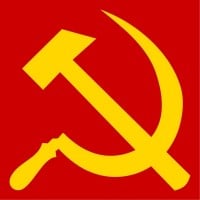Best Forms of Government
Democracy either as a republic or monarchy is the best form of government that respects freedom of speech, press, choice, religion, thought without persecuting people. Before you start, I mean representative liberal democracy, not direct democracy, had to say it before some right-wing "we're a republic" yank would come out and whine, also UK, Canada, France, Japan, Australia, Greece are democracies and so is the US, although the US would be a real democracy if it just get rid of the obsolete Electoral Collage that ignores the voters.
Because it has democratic and republican views, it is also pretty cool that there is a royal family.
Royal families are cool and traditional. But at least the king's power is limited.
Very stable. Progress will not get canceled.
The ruler is trained from childbirth to rule the country as good as possible so in theory this would be good. Only problem you are only allowed to make one child or there will be infighting.
A King should have the unquestionable and divine right to rule the people, without parliaments and constitutions dictating what they are or aren't able to do.
It takes one guy to lead his crew at sea. The crew doesn't vote to decide the direction they travel. It's up to the captain.
Beyond a doubt the American system is best, especially because the founders flirted with the concept of a democracy but opted for a Republic back by an Electoral College to insure all individual states has a voice in its government. Democracy's fail. Why? Look at the America Civil War, the majority was against it. Take for example when the LGBT community was first demanding acknowledgement. The majority of the country was against it. Take Civil Right for the Black man, the majority was against it. How about gun right? , How about women's rights?. What about abortion? Etc. Thank God we are a Constitutional Republic with a twist (Electoral College).

Socialist form of government is one of the best forms of government as there would be no rich and poor in a country. Democracy along with socialism involved is gonna be one of the best governments as all the people get a chance to voice their opinions.
The family that made themselves monarchs ensures, through their privileges, that future generations of their family get to rule. That the family itself got to a ruling position can tell you a lot about their potential to rule. They may be bad rulers, sure, but at least the population knows full and well who's supposed to be held accountable for bad decision.
If a person is told all their life "you must serve the country; this is your life, and always will be your life". They will serve the country as a monarch.
If a person is told all their life "you are better than other people, you will always be better than other people; there is no need to serve others". They will serve themselves as a politician.
...as long not everyone is given the right to vote. Only the most dedicated, the most experienced, the most responsible, the most self-sacrificing etc. should be allowed to vote. Traditionally this was what the Norse þing was about. Not everyone had the right to participate in the political process because why should they? Why should the voice of an adolescent be equal to that of a 40 year old adult with work experience, maybe military experience, with family and kids? When the most experienced and responsible individuals exclusively participate in the political process it ensures that no lobbyist can manipulate their vote, that no useless rhetoric can sway their decisions etc.
As told by Plato in Republic- The most qualified person (a philosopher king) should rule the society.
People may argue that these type of government give way to bad leaders. Well that's true with any form of government. If your leadership is damned, no matter what form of government you have, you are screwed.
A form of government is a TOOL to govern society. An ideal tool is the one that serves its purpose efficiently. Now it's the other thing how user use the tool. A knife can be used to cut both, apple and people

I feel a Communist nation with a semi-democratic electoral system may be beneficial to the world today. Communism or Capitalism refers directly to the Economic Axis of politics, not to the process in which government legislature is created. In Democratic Communism, the nation would be ruled by the people and Communism would be a choice. An Authoritarian Communism (like Stalinism) tastes sour when compared to the comfortably bland Marxist system.
Communism simply refers to a Socialist state in which all class divisions and economic difference has been resolved and private property does not exist. Though this may not be the most comfortable, with enough allowance for personal ideologies and creative passions, a Communist state done right could be the next step to achieving a (somewhat) lasting world peace.
People who have achieved something good get to rule which rewards people.
People who have done honorable things get to rule.
A country cannot be successfully governed by one man. A country also cannot be governed successfully by a mob. The only entity that is worthy of ownership of a nation would be a deity.
Only Catholic theocracies are good.
Because religion is what unifies a county like the Vatican City
I support communes. Everyone must work according to their skills and share them with others and themselves alike.
This is when a dictatorship/junta/monarchy has a constitution that tries to stop chaos from taking over.
Like feudalism but with modern equipment such as pistols. COmbines modernity with chivalry.
(Basically the government controls everything under a dictator. Extreme nationalism, although not racism because that would be Nazism. Although, I do agree with Nazi economics, I think that xenophobia is useless.)
So let's take the goals of a typical liberal state. It wants to assert the rights of the individual while allowing the state to exist to enforce basic law and to protect rights.
Now, a FASCIST state, on the other hand, flips that around. It asserts the rights of the state while admitting the individuals have to exist in order for the state to have meaning. It isn't about the individual, the individual is going to inevitably die after their 70, 80 or 90 years are up. The state can last for millennia though. Therefore, it is the state that is important.
A good analogy for why fascism works the best is the human body. The human body is comprised of each individual cell. The cell is born, it lives, it is productive, and it dies. The result of billions and billions of cells working together in harmony creates a wonderful, powerful beast capable of amazing things.
Instead of thinking about fascism, even historic fascism, at a cellular level (oh, look at all of the people that the blackshirts killed, or all of those people sent to and killed at Nazi work camps) think of the states themselves. They were extremely powerful and feared.
The reason fascism failed in the past is poor leadership, Nazi Germany was capable of so much, but it was subject to Hitler's poor leadership. In my opinion, an aristocracy would have been capable of more.
It's not about the cells. It's about the living, breathing state.
That's why fascism works.
If only geniuses were in power there would be no mistakes.
Where the intellectuals rule society good decicions will be made if there are any.
Synonymous with tribalism. Anarchism has been the major form of government in human history. Prior to civilization there was anarchy. Anarchy ensured that the most fit survived and propagated. Anarchy is ruthless but it's difficult today for the world to be authentically anarchical. If you think about it the world is anarchichal still today. Only the strongest can impose its laws and government on others. Once that strongest one falls society enters into anarchy completely and the new strongest player prevails and imposes its laws and governance. Anarchy is basically about strength, power and timing.
Wins wars every time. The ruler is strategically educated and can't be beaten from the outside.